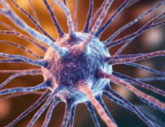Author: DynamicBrain Inc.
Publication: Monthly Newsletter
Published Date: December 17, 2024
Our Dr. Mahncke, the CEO of Posit Science, just addressed the 6th Annual What’s Next Longevity Innovation Summit in Washington, D.C., as we depart 2024. Thinking about BrainHQ, it has indeed had an amazing journey in the path of innovation. It started as a neuroplasticity-based computerized brain exercise program and has developed over the past 20 years to be where it is today—its involvement in research for NASA on how to build astronauts’ cognitive readiness for long space missions! Learn about BrainHQ’s amazing journey and how its use has expanded along the way.
We would like to take this opportunity to send you our warmest greetings for the upcoming holidays and wish you and your loved ones the very best for the New Year!
A final thought: If you’re still looking for a meaningful and rewarding gift for yourself or for someone you care about, take advantage of our holiday promotions.

Happy Holidays! Frieda Fanni
President
DynamicBrain Inc.
DynamicBrain Inc. is the Canadian partner of Posit Science Corporation since 2010 providing brain fitness program BrainHQ in English and French.
|
 |
 A new path to memory
A new path to memory
Current theories propose that, much like a temporary art exhibit, short-term memories are displayed briefly in the brain. A small number of these are then moved to a permanent gallery, our long-term memory. But new research from the Max Planck Florida Institute for Neuroscience suggests that there may be another path to long-term memory formation.
Check out what it is.
 The science of social connection
The science of social connection
Social rejection, though painful, is a learning experience. Why do we form specific social bonds, how do we gauge our social value, and why are some interactions more rewarding than others? Using behavioural experimentation, computational modelling, and neuroimaging, a new study offers explanations to these questions—all questions that have profound implications for mental health and social behaviour.
Read about this study on the science of social connection.
 Tiny but mighty
Tiny but mighty
Fetuses aren’t as defenseless as we once thought, according to research from Duke-NUS Medical School. Until now, it was believed that a fetus was entirely reliant on the mother’s immune system for defense against infection. Instead, fetuses have a functional immune system that’s capable of combating infections in the womb.
See how this may change the way doctors protect fetuses from infections that lead to serious health conditions.